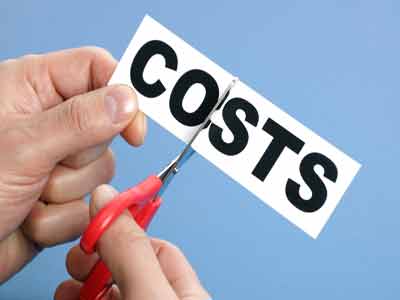The cost of governance in Nigeria has long been a point of concern among citizens, economists, and policymakers. In a country grappling with mounting debt, widespread poverty, and underfunded public services, the excessive spending on government administration stands in stark contrast to the pressing needs of the population. Reducing the cost of governance is not only a fiscal imperative, it is a moral and developmental one. To achieve efficiency and ensure sustainable economic growth, the Tinubu administration must take deliberate and courageous steps to restructure its governance architecture.
At the heart of the problem is a bloated bureaucratic system characterised by duplication of roles, oversized political structures, and inefficient public institutions. From an overpopulated executive arm to a costly legislature and a fragmented civil service, Nigeria spends a disproportionate share of its national budget on recurrent expenditure, leaving limited resources for capital projects, education, healthcare, and infrastructure. This imbalance undermines development and weakens public trust in government.
One of the most effective starting points is the rationalisation of government ministries, departments, and agencies (MDAs). Over the years, numerous committees, including the Oronsaye Committee have recommended the merging, restructuring, or outright scrapping of hundreds of overlapping agencies. Yet, successive administrations have failed to fully implement these recommendations. Adopting and executing such reforms would significantly reduce administrative costs, eliminate redundancies, and improve coordination in public service delivery.
Another major area of reform is the political structure, particularly the cost associated with maintaining the legislature and political office holders. The allowances and benefits received by lawmakers and public officials are among the highest in the world, often with little accountability. Reducing these emoluments, limiting the number of aides, and enforcing strict budgetary discipline can free up significant public funds. In addition, cutting down the size of government starting from the federal level and mirrored across states can lead to a leaner and more responsive public sector.
Technology and digital governance offer another pathway to efficiency. By automating administrative processes, adopting e-governance platforms, and improving data systems, the government can cut costs, reduce corruption, and speed up service delivery. This requires upfront investment but yields long-term savings and improved public sector productivity. Transparency and performance monitoring must also be built into the system to ensure that reforms deliver tangible results.
Public procurement is another key area where waste and inefficiency thrive. Reforming the procurement process to prioritise transparency, competition, and value-for-money can curb the rampant misuse of public funds. Instituting open contracting systems and engaging civil society in oversight can further enhance accountability.
True reform also requires a cultural shift within government. Leadership at all levels must embrace the ethos of public service, accountability, and cost-consciousness. This includes instilling discipline in fiscal planning and rejecting the notion that political office is a path to wealth. Citizens, too, must demand better governance and support efforts to restructure and streamline public institutions.
Reducing the cost of governance is not a one-time exercise; it is a continuous commitment to efficiency, responsibility, and national progress. For a country with vast human and natural resources like Nigeria, the real question is not whether reform is possible, but whether the political will exists to make it happen. In a time of economic uncertainty and social tension, bold action to cut the cost of governance could restore public confidence and set the nation on a path to more inclusive and sustainable development.





